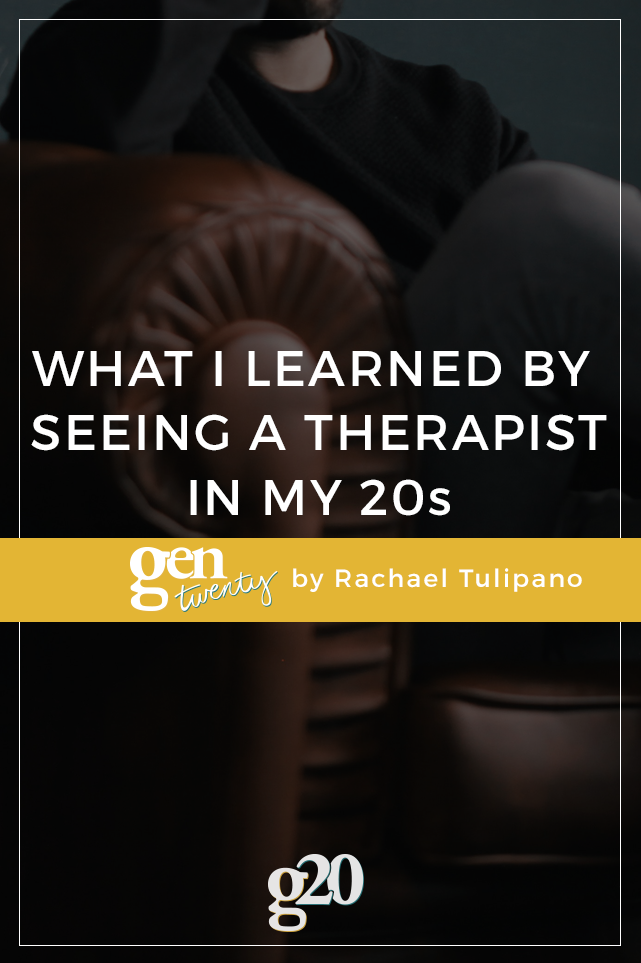This post is sponsored by Seasons in Malibu.

Even in the 21st century, there exists a stigma about people who go to therapy. Too often therapy is described as counseling that is reserved for clients with mental illness and/or people who face crises. Clients of therapy are often stigmatized as crazy, weak, lazy, emotional, and an endless supply of other offensive and inappropriately labeled stereotypes. For some reason, mental illness is still not viewed as important or as serious as cancer, a broken bone, or any other ailment. For reasons I cannot fathom, many people do not understand that we must normalize the need for therapy and counseling services in our modern society. There are far too many myths about therapy, but I do not believe in these misconceptions.
I am a twenty-something who reached out for counseling services. Whether you suffer from mental illness, or you just need to talk to an unbiased professional like I did, counseling and therapy services can prove to be extremely useful. Therapy has the power to help you handle your emotions, set goals, find your purpose, discover solutions to problems you are facing, and more. There are endless benefits to seeking out professional help if you find yourself lost, hurt, having suicidal thoughts, or struggling during a difficult time in your life.
I reached out to a counselor when my parents were going through a gray divorce. I lost a parent, a sibling, and the structure of my home life. I’ll spare you the details, but during this unforgettable time in my early twenties, I struggled to understand my familial structure. My life changed; I moved out of my childhood home, my relationships with many relatives shifted and ended, and I had to learn how to cope with my new surroundings.
What was already a very rocky and unstable moment in time for me as a college graduate and new professional quickly became even more emotional when my parents split up. I experienced loss, anger, abandonment, sadness, and betrayal. Yes, I was an adult, but I wasn’t ready for everything to change that fast! A lot happened during my early twenties, and I still feel the tremors today, long after the storm has passed. However, working with a therapist to speak with during this difficult time helped me navigate my emotions and ultimately, explore my path to move forward.
Here are five lessons I learned by seeing a therapist in my twenties:
1. Having an unbiased professional to talk with helped me confirm my perspective.
During this very emotional phase in my life, I felt lost, lonely, and alone. At times I felt my actions were to blame and other times I felt like the victim. In the beginning I was overcome with sadness and by the end of my treatment I was empowered. Basically, my therapist taught me to trust my judgement, verified my feelings, and encouraged me to be more confident in my self-awareness.
Having an unbiased professional helped me relive what happened and why I felt the way I felt through the process. I learned a lot about where my emotions stemmed from and how to improve my self-image. In a lot of ways, my therapist helped me confirm my perspective. She grounded me to help me trust my feelings and believe in myself.
[clickToTweet tweet=”Therapy in my twenties helped me trust my feelings and believe in myself.” quote=”Therapy in my twenties helped me trust my feelings and believe in myself.”]
2. I learned to be more truthful.
Speaking to a professional who protected my words through patient confidentiality made me feel liberated. I could finally speak my truths without guilt. It didn’t matter if I was angry, crying, or silent; my therapist let me live my truths during my one-hour sessions in her office week after week. By speaking with her, I could finally say all of the things that I had bottled up. I could place blame without shame and speak freely without fear of hurting others with my words. I had opportunity after opportunity to vent and get it all out until I felt better about my situation. Being truthful, even to a complete stranger, helped me hear my truths aloud.

3. I began to think more critically.
My therapist taught me to look at situations from multiple points of view. She made me think about how everyone else involved may have felt during the process of divorce. Many people were impacted by what happened and my therapist taught me how to empathize and sympathize, while also verifying my feelings.
She asked me questions that helped me meaningfully unpack my emotions. These were more than venting sessions; they were counseling sessions designed to help me think more critically about my life. She helped me set goals, she gave me tools to empower me, and she offered guidance when I felt lost. With the help of my therapist, I learned how to analyze my situation and be a more analytical individual.
4. I learned how to let go of things beyond my control.
It’s still a challenge for me today, but my therapist taught me how to let go of what I can’t control in life. Whether it’s how others feel about me, how people react to situations we are in together, or the choices the people around me make, I learned how to let go. I am still working on this lesson in my present.
It is so challenging to let go of the things we cannot control. I know that feeling all too well; maybe you do, too. My therapist helped me focus on my actions,my thoughts, my words, and my emotions. Focusing on myself and everything I can control helped me differentiate between the things that I can’t. This is such an important lesson that I imagine I will work on in my future, too.
[clickToTweet tweet=”By focusing on me, therapy helped me let go of what I can’t control.” quote=”By focusing on me, therapy helped me let go of what I can’t control.”]
5. I started to live for myself.
My therapist helped me find my confidence to chase after the life I want for myself in ways that I can control. This is a lesson I am also working on today because as a twenty-something, it can be hard to live the life we want for ourselves, not the life other people want for us. I still struggle with this, but my therapist helped me put this on my radar. The truth is I need to live for my happiness. I learned (and I am still learning) to take action and take back the power of choice. This is a constant goal each and every single day for me.
Why to Consider Therapy in Your 20s
Facing a tragedy, feeling alone, suffering from thoughts of self-harm and/or suicide, and more are examples of why clients seek professional help through counseling and therapy services. Sometimes people just need someone to talk to, even about the smallest thing. If you ever feel lost, alone, or scared please know that you have resources all around you.
Check your health insurance policy to see if therapy is covered by your insurance. Oftentimes therapy sessions are covered by insurance and you only need to pay a small co-pay for service. Most of the time your health insurance program has a list of mental health professionals that are in your network that you can see free of charge or for minimal fees. All policies are different, so please call your health insurance plan to learn about the benefits your policy offers before scheduling an appointment.
In other cases, it may become necessary for you to seek out rehab and addiction treatment. And that’s okay. If you think this could be something you (or a loved one) might need, where can you start? By learning a little bit about today’s sponsor: Seasons in Malibu.
Seasons in Malibu is a dual diagnosis, CARF-accredited, alcohol and drug addiction treatment center. They work one-on-one with patients to uncover underlying causes of addiction to implement a custom treatment plan. Located in Malibu, California, they use their location to their advantage to promote healing and healthy behavior. Addiction treatment is not a vacation, and with reduced stress, clients can focus on complete recovery. More than 95% of their previous clients say they would recommend their services to others, for addiction treatment, on the road to recovery. If you or someone you know is struggling with addiction, including cocaine, opiates, prescription drugs or alcoholism, visit Seasons in Malibu to see if their programs are the right fit for you.
And on the other side of the coin, it’s important to remember that you don’t have to be diagnosed with mental illness to receive care from counseling professionals. I am an example of someone who went through a tough time and needed professional guidance to stabilize my emotions and move forward. Needing professional care does not make you “crazy,” “weak,” or “emotional.” Seeking out professional therapy services is simply you taking control of your life to utilize the resources around you to help better yourself.
If you’re in a crisis and you need care, visit Mental Health America for a full list of programs and resources available to you nationwide. If you’re having suicidal thoughts or thoughts of self-harm, please call the 24/7 National Suicide Prevention Lifeline at 1-800-273-8255. Your life matters. Your feelings matter. No matter your circumstance, reach out to get the help you need.
[clickToTweet tweet=”Your life matters. Your feelings matter. No matter your circumstance, reach out to get the help you need.” quote=”Your life matters. Your feelings matter. No matter your circumstance, reach out to get the help you need.”]
